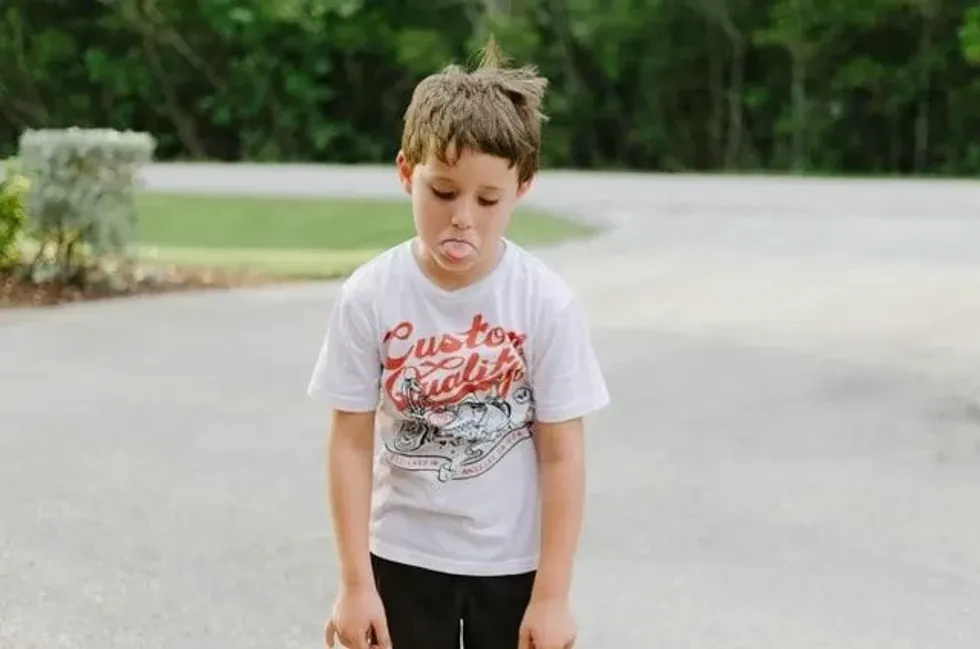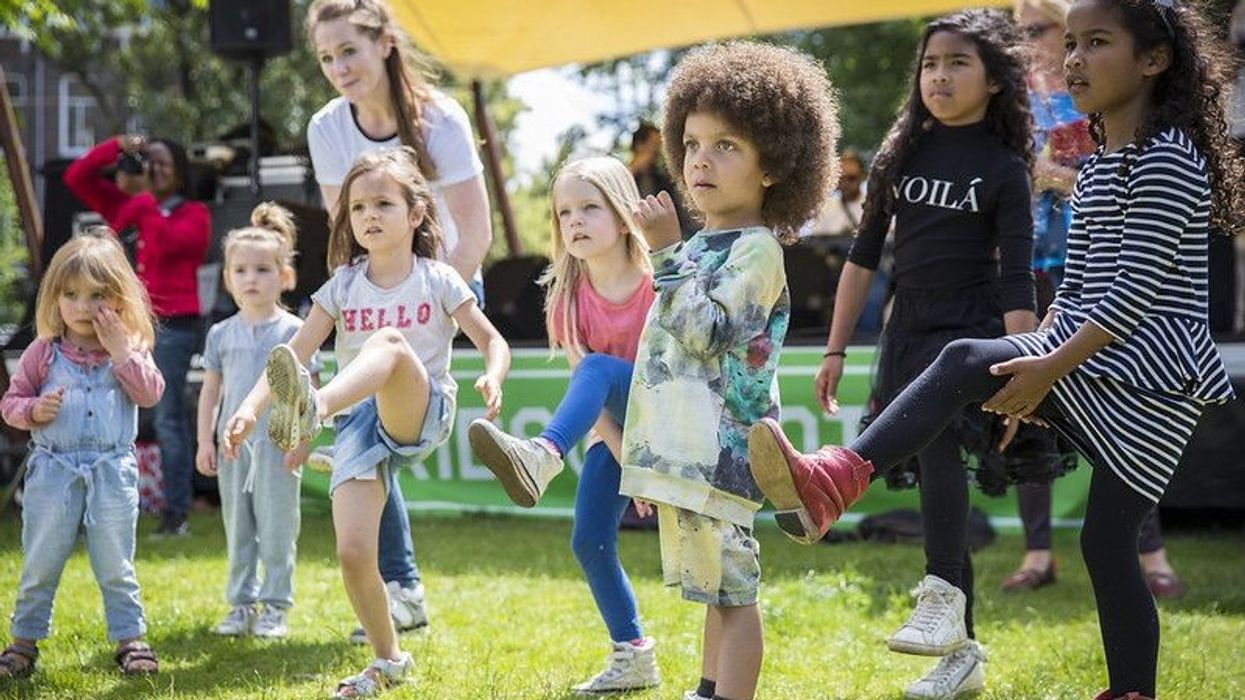When children struggle with their behavior, it can have repercussions on all of the family, and often parents may know they have to respond, but aren't sure of the best way forward.
This can undoubtedly be the case if negative behavior is frequently happening, and nothing seems to be working.
Negative behavior is often a sign your child hasn't managed to develop the skills they need yet to manage emotions or feeling such as frustration, anxiety, or anger; it can also be a sign of an underlying communication difficulty or, in some cases, attention-seeking.
Negative child behavior often constitutes anything undesirable, or anti-social behavior. It's often known as bad behavior, though it's best to avoid the term and labelling a child, as the action can have many roots and such labels may affect their self-esteem.
The effects of not curbing behaviors and supporting your child to change them can have lifelong repercussions, all too often they are known as the [naughty child] at a young age and carry this through to adulthood, continuing destructive behaviors.
You might be wondering how to manage this behavior, or if [manners matter], so let's take a look at 16 types of negative behavior, and how you can help minimize them right away.
1. Bullying
Nobody wants to find out their kid is a bully, and it's painful to think of them intentionally hurting another person. Often persistent bullying is a sign of anxiety in a child and indicative of poor emotional regulation.
It's crucial to work on the topic as soon as possible with your child and make it clear you will listen to their side of the story.
Ask them lots of questions about why they are engaging in it, try to find the root of where this is coming from, and guide them on appropriate alternative responses. Don't forget this also applies to any social media platform your child may be using.
2. Lying
A white lie every now and then may not seem to hurt, but it can cause many repercussions when lying becomes persistent. There are three principal reasons kids lie: fantasy, bragging, or to stop negative consequences.
You can help them distinguish between fact and fiction by asking them if something really happened. With bragging, the lie may be coming from low self-esteem, and boosting how they feel will help.
With lies that come from wishing to stop any negative consequences, give them another chance to tell you the truth to reduce the consequences and make the full consequence for dishonesty. Don't forget it’s always good to role model honesty to your child.
3. Cheating
Very frequently, children cheat with games or work as they are afraid of the feelings that come with losing or doing poorly. Show them it's not a big deal to lose and that it's easy to try again next time, it's the trying that matters.
You can even rig turn-taking games, so they don't always win. If it is related to schoolwork or a test, explain clear consequences for negative behavior in the classroom.
4. Being Ungrateful Or Greedy
Greediness is another negative behavior in children. Avoid telling them they are greedy or acting spoilt, and set clear limits with your child. Give consequences for greedy behavior. You can try redirecting negative behavior, such as giving toys away to charity and teaching them the concept of being thankful.
5. Being Disrespectful
This may include backchat or making faces behind your back. As a parent, these actions can be hurtful, as it sends out a clear message that they don't think they need to consider how you or other people may feel.
If you see your child doing this to another person, be sure to take them aside as soon as possible after the episode and explain why you are upset.
6. Defiance
Try not to threaten a child who isn't obeying you. Instead, you can try the "two free requests" method.
The first time you ask your child to do something, give them two minutes to reply. If he doesn't follow, patiently tell them in the situation, "I'm now asking you a second time to pick up your toys.
Do you understand what I'm asking you to do, and what the consequences are if you don't?" This gives your child a second chance to obey you, without escalating the situation into a confrontation.
7. Laziness
If you feel your child is becoming lazy, try your best to teach your child the importance of valuing things. One idea is to include them in household chores in order to help them understand the importance of responsibilities. Be an example and set clear goals and expectations.
8. Using Bad Language
The most powerful way to control foul language is by ignoring it altogether, including no talking and giving no reaction in the situation. When your child is calm, you can explain to them that swearing and negativity don't solve the problem.
9. Too Much Screen Time
We all know too much time in front of a screen isn't good for our kids, but how can you control it when the tablet starts to take over? One good strategy is to begin implementing a reward system to earn time on the device and use the tablet as a reward.
Be realistic about the situation and gradually reduce the device, using steps such as screen-free meal times or screen-free zones.
10. Whining
If your child is whining, remain calm and don't give in easily. Reward them positively when the behavior stops. You can introduce house rules such as asking nicely for an item and accepting the answer. Your child may need reminders to learn change, such as "how do we ask nicely? What can we say when someone tells you no?"
11. Blaming Others
We all know the classic "but he did it! It wasn't me" or "she did it first!" When you notice your child is misbehaving, are they fast to point the finger at others? It's essential to change this behavior and teach your child to take responsibility and own their actions.
While it's very common for young children to want to avoid any form of punishment, try to explain why it is important to own up, and how owning up honestly and being sorry to who they blamed will avoid consequences.
12. Impulsive Behaviors
It's a good idea to raise awareness to your child of their impulsive action. They may not have realized, and understanding can help diffuse it. Provide alternative ideas while they are waiting for something, and praise patience.
13. Aggression
There are many reasons children display aggression, and it's essential to try and get to the bottom of it. Teach your child to deal with the signs of feeling angry and acknowledge how they feel. Explain to them what choices they can make instead, such as taking deep breaths and counting slowly to 10.
14. Temper Tantrums
As hard as it may be to do so, try your best to ignore a tantrum. Try not to give your child any attention and pretend it isn't affecting you or draining your energy.
It's best where possible to prevent tantrums by rewarding positive behaviors, and offering your child control over little things in life, such as giving choices like, "do you want apple juice or milk? ".
15. Bedtime Struggles
Is going to bed a daily battle? Does your child insist on sleeping with you or refuse to go to bed?
Do your best to get into a good routine and establish bedtime rules. Be clear and consistent, for example, if they have gone to their bed in the week do not accept them back on a Sunday to avoid sending mixed messages.
Bedtime challenges can also affect your child's sleep, and sleep deprivation can lead to other negative behaviors in their daily life.
16. Stealing
If your child has been caught stealing, it is essential to work on it as soon as possible and understand why. There are many reasons children steal, in preschool children, they may not understand the concept of other peoples' belongings, in older kids, it could be peer pressure.
Emphasize honesty and teach them respect for property, such as borrowing and ensuring they return the stolen item.
What Will Best Avoid Negative Behaviors?
Don't Give In
Resist the temptation to end your child's negative behaviors by giving him or her what she wants when they explode. Giving in sends the message that their undesirable behavior works in achieving what they want.
Remain Calm
As hard as it may be in the heat of the action, do your best to stay calm. Sudden, harsh, or highly emotionally charged responses tend to escalate a child's aggression, whether verbal or physical.
Instead by keeping calm, you're also modeling an example of how to change negative behavior and the type of steps you want to see them perform.
Ignore Negative Behavior And Focus Praise On Positive Behavior
Try your best to ignore the smaller behaviors. This might not be easy, but it is important because even negative attention such as threatening or telling the child to stop can be reinforcing negative behavior.
Instead, change things around and provide lots of praise for behaviors you want to see more often. Don't just say "well done," say "well done for calming down." Being as specific as possible will help them to understand.
Use Consistent Consequences
It is important your child understands what the effects are for both positive and negative behavior, such as time-outs and rewards; and it would be best if you showed you intend to stick with these consequences every time.
Effective Use Of Consequences
Consequences that are more effective begin with great attention to the behaviors you want to encourage. Consider:
Positive attention for positive behaviors. Giving praise to your child when you find them naturally doing something good makes them more likely to repeat the positive action again.
Ignoring negative behavior.
Reward menus with clear goals.
Time outs.
If you found this article helpful, then why not look at our [sample behavior management plans] or our [child behavior checklist] too?










